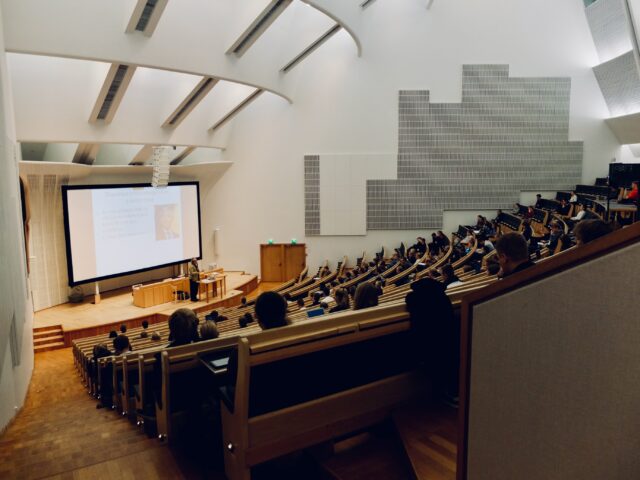Iqaluit-Tasiluk MLA George Hickes has raised concerns in the Nunavut Legislature about students who were unable to enrol in postsecondary studies because of late and incomplete transcripts. Hickes questioned Education Minister Pamela Gross about the issue, stating that this is the second year that transcripts have been late or incomplete. Several students have reportedly had postsecondary applications denied as a result of incomplete transcripts, in turn preventing them from pursuing further education for the time being able to enrol. Nunatsiaq News reports that recent issues with transcripts stem from a ransomware attack on a service provider for the Department of Education, and CBC adds that the situation was also affected by a switch from outdated information systems in January. “These escalated files are our top priority,” said Gross “We’re happy to work with individuals to ensure their transcripts are the most accurate.”

Indigenous Top Ten News
March 23, 2022
A new report from the Winnipeg Indigenous Executive Circle calls for the development of new programs, strategies, and supports to improve equity in the Winnipeg school system. “We know that currently what we’re doing isn’t working,” said report author Heather McCormick, “and that we really need to have different pathways for our community to move into the faculties of education to become teachers.” The State of Equity in Education Report for 2021 indicates that, in order to have a proportionate number of Indigenous teachers to the number of Indigenous students, school divisions must hire at least 600 more teachers in Winnipeg. Based on those numbers and the current educational pipeline, McCormick noted that it would take 20 years for Winnipeg to reach that goal. The report highlights the progress that school divisions, university faculties of education, and the province have made over the past year on a variety of equity initiatives and identifies opportunities for them to improve. These opportunities for improvement are summarized in eight calls to action directed at policy makers, the postsecondary systems, and the K-12 sector to address the underrepresentation of Indigenous teachers and leaders in the education sector.
Indigenous leaders have expressed hope about the possible impact of the Government of British Columbia’s move to implement an Indigenous course requirement for secondary students. Grand Chief Stewart Phillip, who is president of the Union of BC Indian Chiefs, said the news was “encouraging” and would help to combat racism, while Tyrone McNeil, president of the First Nations Education Steering Committee, said the changes will give students an opportunity to build empathy and reduce bias and racism among both students and teachers. “Students will graduate with a more robust understanding of the histories and perspectives of BC First Nations,” said Regional Chief Terry Teegee, BC Assembly of First Nations. “The graduation requirement will be an important learning tool for all students and all British Columbians. It is an important step toward improving BC’s education system in the spirit of recognition and respect.”
Individuals from the Métis Settlements of Alberta (MSA) are raising concerns about not being allowed to walk its flag in at the College of Alberta School Superintendents’ (CASS) First Nation, Métis and Inuit education conference, reports The Star. Métis Settlements General Council President Herb Lehr reportedly had travelled to the conference to carry the flag, but was told he would not be able to participate. Instead, the conference used the Seven Oaks flag, which CASS executive director David Keohane said represents all the Métis in the province. Kikino school principal Laurie Thompson said that Métis Settlements often are dismissed in education and raised concerns about students learning only about one Métis group. “Where I have left this is, and it’s to the acceptance of the Elder advisory committee, is that we engage in a discussion with all participants, including the Métis Settlements, about how to proceed with this in future areas […] so we have a ceremony protocol that is supported and endorsed by all parties,” said Keohane.
A team from the University of Calgary’s Faculty of Social Work have challenged the colonial worldview by submitting a SSHRC funding application entirely in nêhiyawewin (Cree language). The proposal, which was submitted entirely in the Cree language as a way to honour nêhiyaw language holders and knowledge-keepers, had a goal of being evaluated in the same way as other proposals in English and French. “Language creates reality. There are multiple realities, and these realities are created through language,” said UCalgary Associate Professor and Elder’s spiritual helper Ralph Bodor. “Cree is a language of verbs. English is a language of nouns. When you’re trying to change a verb into a noun, it’s impossible.” The proposal was rejected by SSHRC without appeal because of claims of challenges with ensuring quality peer review. “I don’t think they even recognized that there’s another world view aside from the Western world view,” said team leader and Elder Leona Makoki. “Had they gone through the whole process, it would have been a learning opportunity and an opportunity to do some relationship building.”
The University of Winnipeg’s Prairie Climate Centre has announced the co-development and release of Indigenous Knowledges component for the Climate Atlas of Canada. The new component brings together climate data and projects from First Nations, Métis, and Inuit communities; brief documentaries; and a distinctions-based Indigenous Knowledges section in the Climate Atlas of Canada. The information was designed by, with, and for First Nations, Inuit, and Métis organizations and communities, and was developed in collaboration with an Indigenous Leadership Group and partners such as the Assembly of First Nations (AFN) and the Métis National Council (MNC). The voices of prominent Indigenous figures like Inuk Climate Advocate Siila Watt-Cloutier, AFN Yukon Regional Chief Kluane Adamek, and MNC President Cassidy Caron are featured throughout the content. “Modern science cannot be the only way we view things, we actually have to take a whole new First Nations lens, and put these lenses together, and that’s what we’re looking to do,” said Adamek. “This new content on the Climate Atlas brings these two worlds holistically together for future generations.”
Portage College has officially opened Waniskah ᐊᐧᓂᐢᑲᐦ, a new Cultural Space at the Lac La Biche campus. The space will provide a welcoming and safe environment for learning and healing for Indigenous and non-Indigenous individuals. The centre includes a Mikiwahp concept (tipi) art installation comprised of four poles and a hand-painted liner that was raised during a ceremony. The space was created through collaboration between community members, students, Elders, artists, and staff. “They brought the vision to reality and it’s an amazingly beautiful space,” said Portage VP of Student and College Services Bev Moghrabi. “You can feel the combined efforts and pride that has gone into its creation.” The space will be blessed through a pipe ceremony.
Kativik Ilisarniliriniq has reached an agreement in principle with the union that represents its teachers. The agreement, which has yet to be ratified by union members, includes a range of benefits including a cashable food transportation allowance, a retention premium, and an allowance for locally hired staff. It also includes a new Protocol of Agreement with the Government of Quebec Ministère de l’Éducation and the Treasury Board Secretariat which guides the Kativik School Board’s management during collective agreement negotiations. “For the past 20 years, Kativik Ilisarniliriniq has tried to eliminate disparities in the working conditions of its unionized employees,” said Kativik President Mme Sarah Aloupa. “Today, we reached an agreement in principle, which includes a set of unprecedented administrative measures that were introduced by management. It’s a historic moment for the Nunavik education sector.”
A new pathway created by Saint Paul University, Oshki-Pimache-O-Win: The Wenjack Education Institute (OSHKI), Canadore College, and Sault College will open up new opportunities to Indigenous students and build capacity for sustainable, culturally appropriate mental wellness services in Indigenous communities. The partners have established a credit transfer agreement where students can gain hands-on skills through a two-year college program before entering and completing a Bachelor of Arts in Human Relations in two years. Graduates of the bachelor’s degree program will be prepared for SPU’s Master’s in Counselling and Spirituality program. “We recognized the increased need for specially trained mental health and wellness professionals serving Indigenous communities in the north and we are happy to fill this need with this unique program pathway,” said OSHKI President Lorrie Deschamps. “The hands-on experiences gained by students is valuable to improve positive health outcomes for the communities we serve across Nishnawbe Aski Nation.”
While nearly 30,000 people speak the Anishinaabe language across Manitoba, Ontario, and Quebec today, there are very few teaching materials and resources available to help teach the next generation of speakers. Aya Dufour of CBC shares the stories of Anishinaabemowin speakers who have created curricula, developed online classes and software, and produced new teaching materials in order to pass the language on to the next generation. “I got to my office and there was nothing for me to use,” said Sandra Peltier of Wiikwemkoong First Nation, reflecting on when she began teaching the language in 1986. “I was overwhelmed by the number of things that needed to be done and created. But through that, I fell in love with teaching my language, and I developed a passion for it.” Today, Peltier has developed several teaching materials and resources, and works with elders and graphic designers to standardize the language curriculum for the schools in her community. For the language to have a real future, Peltier explained, schools will need to offer immersion programs in schools. Jed Meltzer, a senior scientist at the Baycrest Geriatric Care Centre in Toronto, also noted that the language tends to be spoken by grandparents and their grandchildren, with the parents – the generation in-between – left out. “For a language to thrive, it needs to be spoken by the family,” he said.
